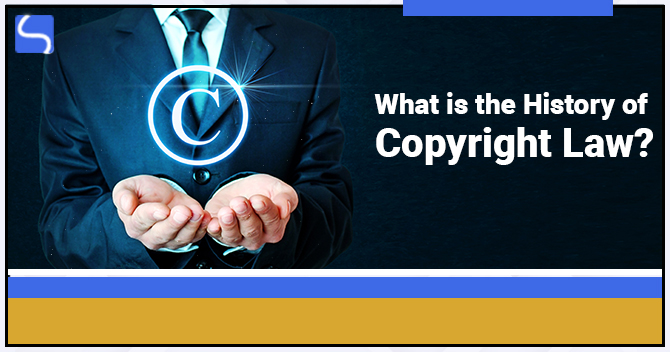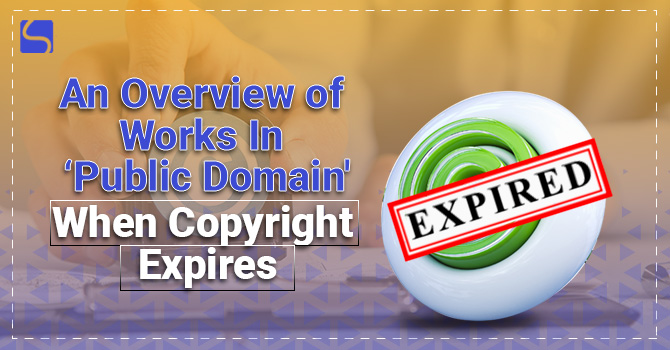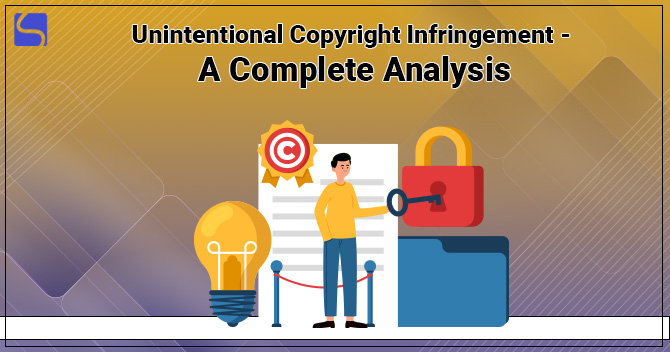What is the History of Copyright Law?

Karan Singh | Updated: Jul 26, 2021 | Category: Copyright
The history of Copyright Law is an interesting but long & complicated one. The traditional knowledge is that the beginning of modern Copyright Law is associated with the print invention in the 15th century in Europe. Printing granted mass dissemination of ideas and information included in the literary medium at a comparatively low cost. The development of literacy created an enormous demand for printed books, and the security of publishers & authors from illegal copying or duplication was identified as increasingly in the context of this new means of making work available to the general public. This led to the performance of the very first Copyright Laws. In this write-up, we will discuss the history of Copyright Law.
Table of Contents
History of Copyright Law in the UK
The history of Copyright Law starts to appear with printing machine invention, which made it likely to copy literary work by a mechanical procedure. The printing press was created in the year 1440 by Johannes Gutenberg in Germany.
In the year 1483, the invention of Gutenberg reached the UK, and then Monarch King Richard III lifted the ban on the import of books & manuscripts. As a consequence, authors commenced sending their books to the UK for printing. They liked a royal license & due to the proliferation of books, England soon became the Centre of Printing across Europe.
In the year 1533, King Henry banned the imports of stationery & books under the pretext of the improvement & growth of printers and publishers in England. In 1557, the stationery company received a royal charter and was issued the privilege of regulating the book trade. The company was essential for three reasons:
- Safeguard trade quality;
- Limit Competition;
- Lessen unprofessionally.
Statute of Anne
This came into action on 10th April 1710. This Act caused a paradigm shift in the Copyright world. It recognised the author’s rights to published work. This came to be known first Copyright Law in the world. The objective of the Act was double:
- To encourage learning;
- To provide the author protection against piracy.
Main Rules of the Act
- Book’s author not yet printed shall have the only right of printing for 14 years and if after 14 years they are alive then additional 14 years;
- No book shall be bought for the violation unless the book title has been entered before publication in the Register Book of the stationery entity.
History of Copyright Law in India
History of Copyright Law in India begins in 1847 via an enactment at the time of the regime of East India Company. As per the 1847 enactment, the word Copyright was for the author’s lifetime. However, in no case could the total term of Copyright exceed a time of 42 years. The Government could issue a compulsory license to publish a book if the Copyright owner declined to permit its publication upon the author’s death. The Infringement Act comprised an illegal printing of a person’s copyrighted work for exportation or sale hire, or selling, exposing or publishing to sale or hire. Suitor action for violation is to institute in the highest local court practising original civil jurisdiction.
The Act offers specifically that under a contract of Copyright service in any magazine, encyclopaedia, periodical work, review. Moreover, work that publishes in parts or services of books shall protect by the publisher, owner, projector, or conductor. Violating copies were considered to be copies of the copyrighted work owner. Essentially, unlike today, Copyright in work was not automatic. Copyright Registration with the Home Office was compulsory for the enforcement of rights under the Act. But, the Act also reserved the continuation of Copyright in the author and their right to sue for its violation to the extent available in law other than the 1847 Act.
In 1914, then the Indian Legislature enacted a new Copyright Act. Further, this extended most portions of the UK Copyright Act, 1911 to India. It did, but make a few minor modifications. First, it stated criminal sanctions for Copyright Infringement from Section 7 to Section 12. Second, it changed the Copyright term scope, under Section 4 of the Right of the author to produce, publish, or reproduce perform a translation of the work shall subsist only for a time of ten years from the date of the first publication of the work. The author but retained their sole rights if within the time of ten years they published.
Development of Copyright in India
After discussing some history of Copyright Law, let us understand the development of Copyright in India; before the Act, 1957, Copyright protection was regulated by the Copyright Act, 1914, which was the addition of the British Copyright Act, 1911. The Act changes after 1957 in 1983, 1984, 1992, 1994, & 1999. In 2012, both Indian Parliament houses generally passed the Copyright Amendment Bill 2012[1].
Some of the crucial amendments to the Copyright Act, 2012 are: getting the Act 1957 in conventionality with WPPT and WCT. Further, widespread Copyright protection in the digital surroundings. They are such as penalties for the avoidance of technological protection measures & rights management information.
Introduction of legal licenses for cover versions & broadcasting organisations. Make sure the right to receive royalties for author’s and music composers, exclusive economic. Moral rights to performers, similar membership rights in Copyright societies for authors & other owners’ rights. Further, the exception of Copyrights for physically disabled to access any works.
Post-Independence History of Copyright Law in India
The Copyright Act, 1957, came into action on 21st January 1958, replacing the 1911 Copyright Act. The Act, besides changing the Copyright Law, has also announced milestones changes such as provisions for establishing Copyright Office under the Copyright Registrar control for the registration of books & other artworks. It is also set up a Copyright Board to deal with the disputes concerning Copyright.
Following are some amendments made in the Copyright Laws (Amendment) Act, 2012 comes under the significant classified into:
- WPPT and WCT Concerning Amendment to Rights;
- Amendments Providing Access to Works;
- Reform of Copyright Board and other Minor Amendments;
- Author-friendly Amendments on the Assignment and Licenses Mode;
- Amendments to Rights in Cinematograph Films, Artistic Works, and Sound Recordings;
- Strengthening Enforcement & Protecting against Internet Piracy.
Conclusion
The history of Copyright Law is a complicated one. Even after more than 100 years, it is in the growing stage. This is because technology is changing much faster than ever. With new techniques, the old laws seem to be falling behind, especially in the case of non-literal work. It is often tough to tell what is identical to the extent of Copyright Infringement as it’s a very subjective question. Therefore, we require more specific laws to reduce subjectivity.
Read our article:A Complete Guide on Copyright Judgement in India














